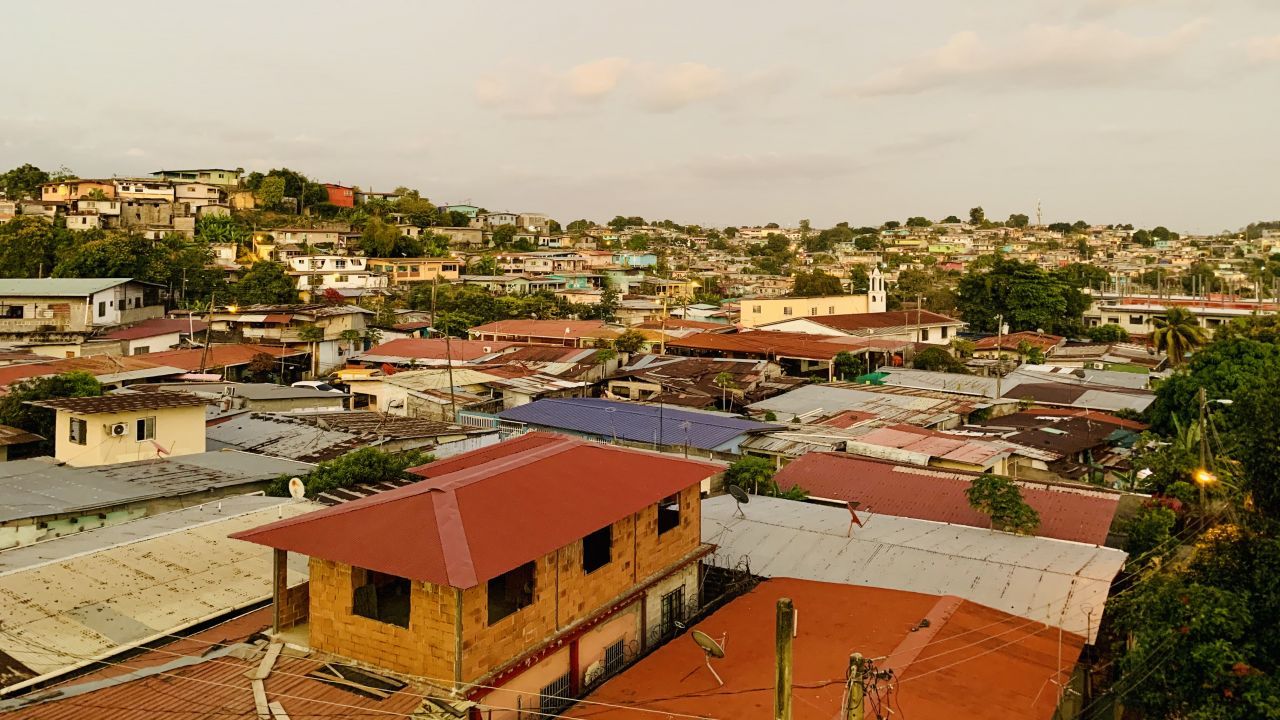In an online workshop sponsored by the University of Sheffield, women doing social science in Africa, Asia, Europe, and Latin America shared their experiences in dealing with gender-based violence during fieldwork.

Rooftops over Panama city against the skyline
Photo by: Dr. Ana Laura Zavala Guillen, Panama City
In an online workshop sponsored by the University of Sheffield, which took place on 22nd of April, women doing social science in Africa, Asia, Europe, and Latin America shared their experiences in dealing with gender-based violence during fieldwork. Participants also reflected on issues that academia needed to address urgently to increase the safety of female researchers during data collection.
Examples of gender-based violence in the field encompass physical and verbal street harassment, sexual abuse, rape, intimidation, threats and discrimination and mansplaining in male-dominated research teams. These examples escalate in isolated or insecure contexts, such as natural disasters areas, conflict and post-conflict zones, and macho-dominated cultural environments.
A common concern was that efforts towards the prevention of gender-based violence in the field by academic institutions remained insufficient. Female researchers referred to the lack of specific training on this topic before fieldwork, sufficient mental health support before, during and after data collection, and health and safety risk assessments that acknowledge gender-based vulnerabilities with concrete responses.
Taking women’s safety seriously in the field implies recognising that achieving gender equality in science has specific costs and requires investment. Research budgets with a gender perspective can contribute to producing knowledge more securely, acknowledging the valuable insights that women bring to science, for instance, due to the unique access to specific groups and places.
During the workshop, participants identified different practices implemented to overcome gender-based violence in insecure contexts: the presence of companions, research assistants or local helpers, mainly men; the use of public spaces as meeting and interviews sites; dressing down to blend in; booking private accommodation and transportation, which are difficult to afford – especially for PhD students, and flexibility around altering research plans and daily routines to avoid being predictable and therefore objects of attacks. Furthermore, during the workshop, participants described episodes of anxiety and emotional pain experienced before, during and after fieldwork, that sometimes increased while analysing data due to memories of harassment that demand specific mental health support mechanisms be put in place.
Participants concluded that, in some scenarios, less data or reframing research projects was not a failure, but was a form of protection in a world where violence against women has reached epidemic proportions. Reflection on methods, positionality and analysis must acknowledge these experiences of gender-based violence that come with the data production. Data is sometimes used by many other scientists disregarding the high gender-based risks involved in its collection. Reflection will help to raise awareness in academia and among funders about the need for more training and emotional, financial, and material support for women in science.
With this blog, we are happy to officially introduce to the academic community the Network for Women Doing Fieldwork that will have its first meeting in August with the sponsorship of the University of Birmingham. In the short-term, this network will aim to prepare a tool-kit to design research budgets and health and safety risk assessments from a gender perspective, to deliver training on this topic, and to develop a network of allies in grass-roots organisations and academic institutions located in the places where members of the network conduct fieldwork.
If you are interested in creating academic cultures where the emotional and physical safety of women in the field becomes a priority, please consider joining our mailing list: WOMEN.FIELDWORK (AT) jisc.ac.uk
Dr Ana Laura Zavala Guillen
Dr Itzel San Roman-Pineda
Dr Jennifer Lidia Veenstra